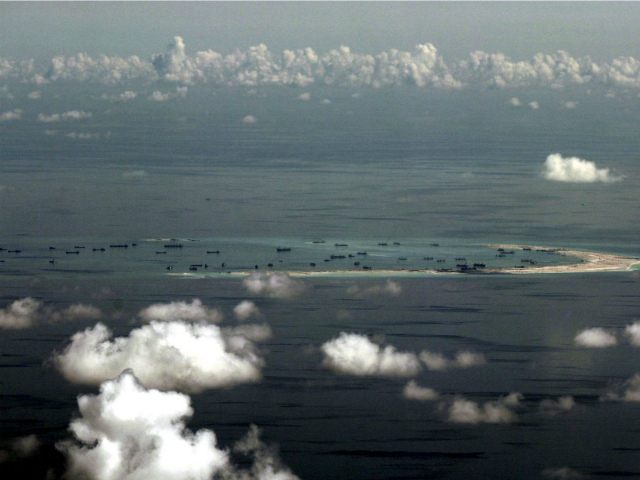Chinese officials are trying to downplay accusations of aggression at the Association of Southeast Asian Nations (ASEAN) this Tuesday.
Recently, the Chinese government has come under fire for various construction projects in the South China Sea. Other regional powers, such as Japan and the Philippines, are worried that these projects represent a renewed imperialist attitude in the communist nation.
Regional leaders fear that the Chinese military may uses these constructs as places from which to project power, and that these constructs would make the massive Chinese military much more flexible and agile.
Chinese officials apparently are worried that the United States and other countries may bring up these artificial islands and the increased military presence in the South China Sea at the conference.
“It should not be discussed [at ASEAN],” Liu Zhenmin, China’s foreign minister, said. “This is not the right forum. This is a forum for promoting cooperation. If the U.S. raises the issue we shall of course object. We hope they will not.”
Liu shifted the blame for increased hostility and growing tensions in the region onto foreign countries.
“Outside countries, they are trying to militarize the region,” he said.
ASEAN consists of the ten Southeast Asian states, China, Japan, South Korea, Australia, the United States, the European Union, Russia, and India.
China claims almost the entire South China Sea, which sees $5 trillion in trade pass through each year. Rival nations, like Japan and India and even Vietnam, each dispute China’s legitimacy to control of the region.
The United States is almost guaranteed to address the tensions at this week’s upcoming conference.
The Center for Strategic and International Studies, a Washington-based think tank, is claiming that the Chinese are planning to construct even more airstrips.
“A Chinese airbase at Fiery Cross Reef would allow for much-improved situational awareness…China may be more readily able to use the airbase for patrols or limited offensive operations against other South China Sea claimants, or even United States assets,” the group said.
In a monthly briefing last Thursday, Yang Yujun, a spokesman for the Chinese defense ministry also tried shifting blame away from his country for the re-militarization of the region.
“The U.S. side disregards and distorts the facts, and plays up ‘China’s military threat’ to sow discord between China and China’s maritime neighbors in the South China Sea,” Yang said.
“We strongly oppose such actions,” he went on to say.

COMMENTS
Please let us know if you're having issues with commenting.